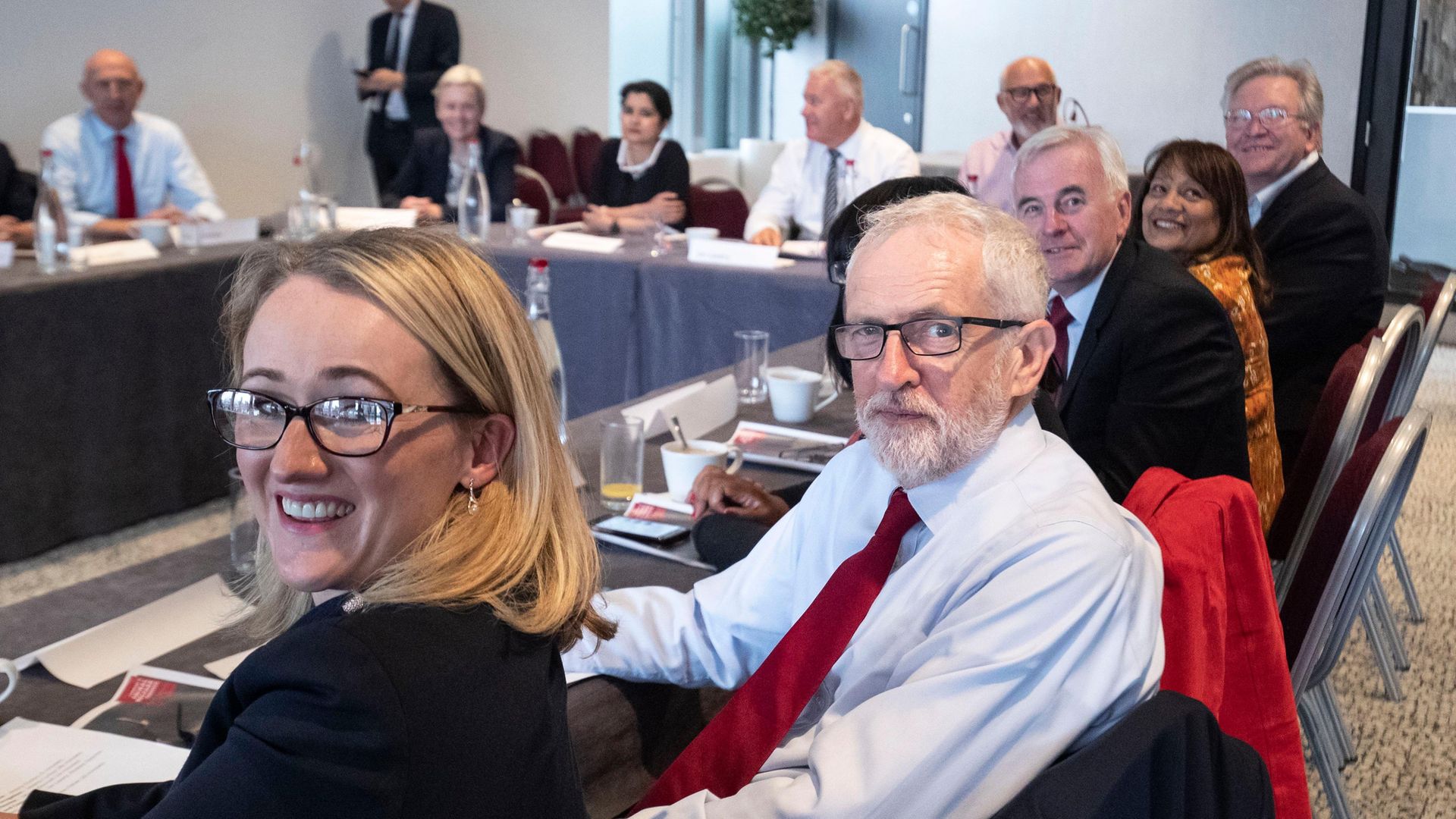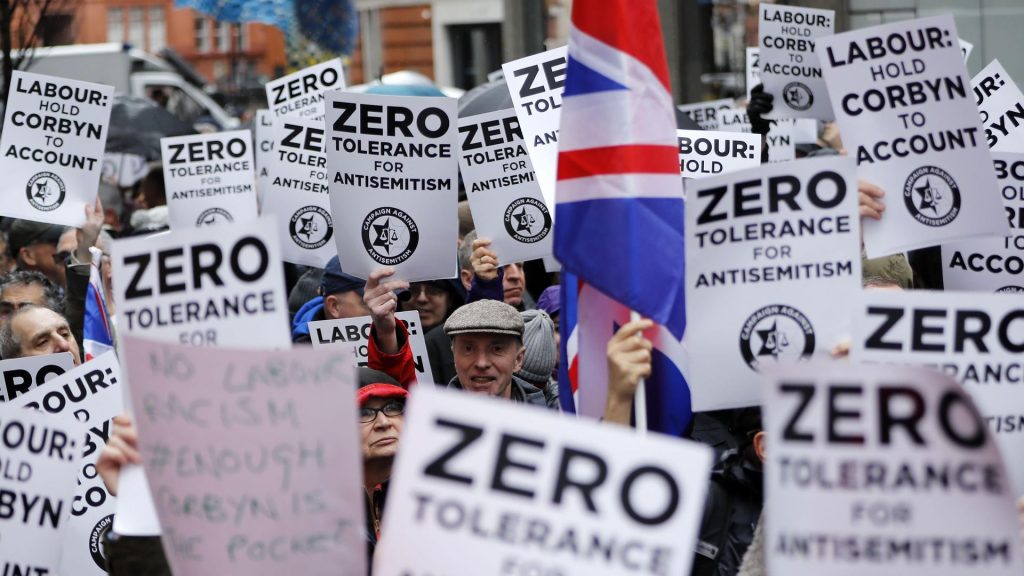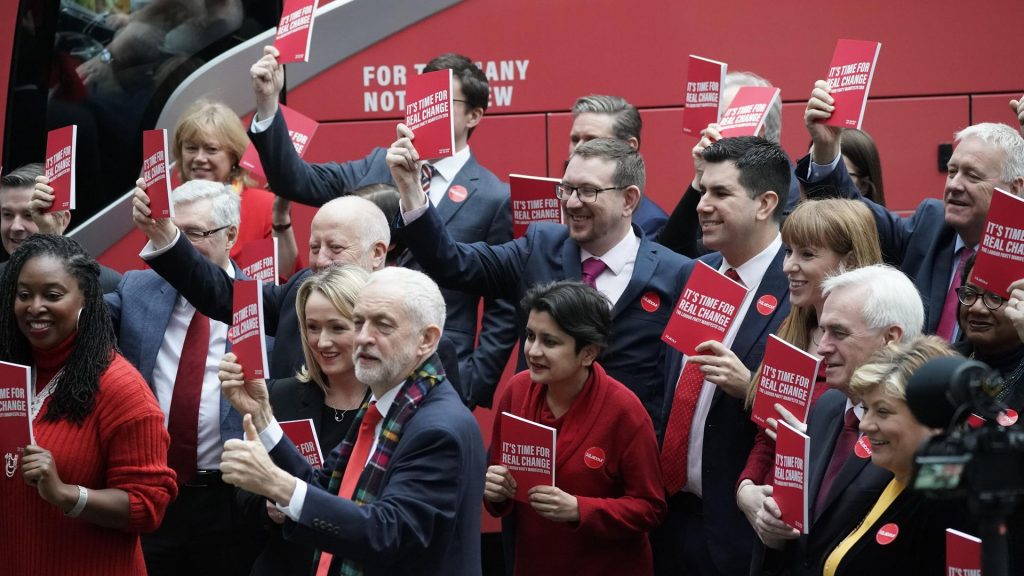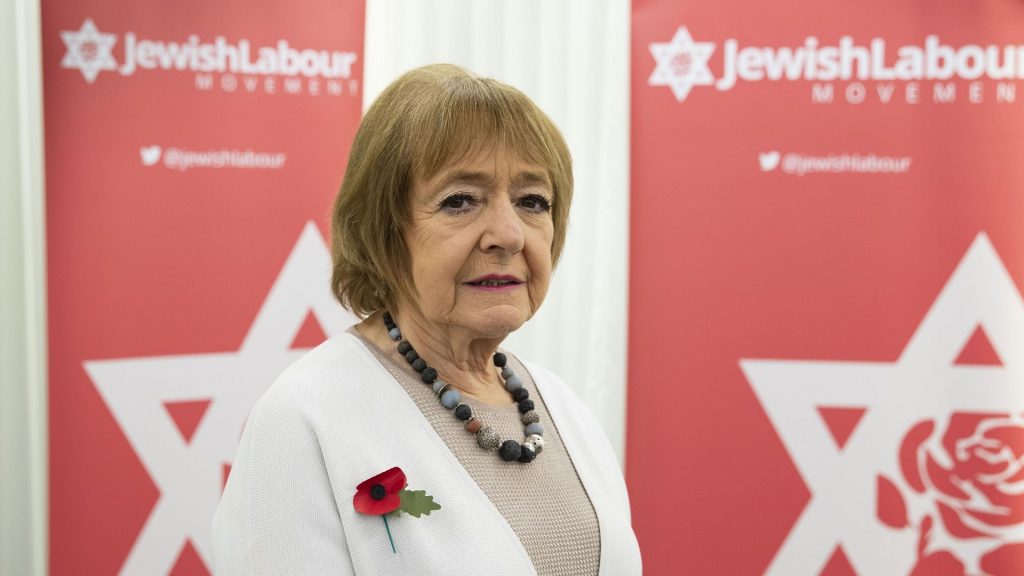
No analysis of the state of Britain today can be possible without an understanding of why Labour finds itself in its current position. Its failure to properly address prejudice in the party before the last election are at the heart of that. FRANCIS BECKETT has had access to insider accounts of the key meetings under Jeremy Corbyn which explain a calamitous and consequential mishandling of the issue.
I live in the so-called bagel belt in North London – three marginal parliamentary constituencies with many Jewish voters which returned Conservative MPs at the December 2019 general election, but would have almost certainly have returned Labour MPs if the party had been led by anyone other than Jeremy Corbyn.
Canvassing for Labour there was horrible. “I’m Jewish, it would be like turkeys voting for Christmas” was one of the more polite reactions I got. Our leaflets were torn up in my face. An elderly Jewish socialist in Hendon told me sadly that he had just voted Conservative for the first time in his life; he remembered when Jews saw Labour as their natural home. In Finchley and Golders Green, some voters considered supporting the Liberal Democrat candidate, Luciana Berger, because Labour had no chance and they hated Brexit. But Berger’s party might support a brief Corbyn-led coalition, so they voted Tory instead.

Many people believed that a brief Corbyn-led coalition government would have been a danger to Jewish people, and that Corbyn is anti-Semitic. That played a major part in bringing to power our present incompetent government, and delivering a hard Brexit at the start of this year.
How was this perception allowed to grow? I recently talked to some key players who, between them, had been to most shadow cabinet and national executive meetings over the period and who have helped me build up a picture.
I already knew part of it. In early 2018 I contacted Corbyn’s strategy and communications chief to discuss the chapters on anti-Semitism in a book I was writing with Mark Seddon. Seumas Milne telephoned Mark to say that we should not include anything about anti-Semitism. That would be playing the Tory game, he said.
Mark and I then contemplated the awful fact that Corbyn was taking his strategy and communications advice from someone who thought it was possible not even to mention anti-Semitism in a book about Corbyn. How much worse could it get?
Quite a lot, I found, after I talked to some key players who, between them, had been to most shadow cabinet and national executive meetings of the Corbyn years and heard their first-hand accounts of those vital moments.
For instance, at a meeting on March 27, 2018, the day after a Jewish demonstration against Corbyn in Parliament Square, Keir Starmer was telling Corbyn at the shadow cabinet that he had to engage properly with the issue. Simply repeating that he condemned anti-Semitism “and all other forms of racism” was not going to do the trick.
Starmer wanted the shadow cabinet to “take ownership” of the issue. John Cryer, chairman of the Parliamentary Labour Party, told Corbyn: “Your allies on the NEC need to be sorted. One has just written that it’s all a conspiracy to attack you, which it isn’t.”

Shami Chakrabarti, the shadow attorney general, described how, when she was a child, her Jewish neighbours protected her Bangladeshi immigrant family when the National Front attacked their house. Just because your opponents maximise the problem, it doesn’t mean you don’t have a problem. She added pointedly that her report on anti-Semitism in the party, for which she had received a lot of undeserved abuse and which was now more than two years old, had not yet been fully implemented.
Before Corbyn met the Board of Deputies of British Jews in June 2018, the Board’s then president, Jonathan Arkush, told me: “It’s no part of our wish to see Jeremy Corbyn removed as Labour Party leader, but rather our fervent hope is for him to be part of the solution. Our appeal to Jeremy Corbyn is to make this his issue.”
Arkush did not then consider Corbyn an anti-Semite, and he took seriously the charge that the Board was not willing to hold the right to the same standards as those to which it rightly held the left. He admitted that it had decided against even the mildest protest over a Daily Mail attack on Ed Miliband’s late father, Professor Ralph Miliband, that was considered by many to be anti-Semitic.
So there was something for Corbyn to build on. But the meeting, when it came, was a disaster. Corbyn said almost nothing. Milne did most of the talking, starting by accusing Israel of “ethnic cleansing”.
Yet something might have been rescued from the wreckage. Gabriel Pogrund and Patrick Maguire, in their 2020 book Left Out, report that a member of the Board of Deputies wanted to arrange for Corbyn to visit the Holy City’s Hadassah Hospital, where Jews and Arabs were treated side by side. Corbyn’s old friend John McDonnell, the shadow chancellor, was frantic for Corbyn to go. But Corbyn’s staff prevailed. Corbyn – as Shimon Peres said of Yasser Arafat – never missed an opportunity to miss an opportunity.
The following month, on July 17, Labour’s NEC debated whether to adopt the International Holocaust Remembrance Alliance (IHRA) definition of anti-Semitism. By majority vote it backed a slightly amended version proposed by the party’s Organisation Committee, which it considered necessary to avoid stifling criticisms of Israel.
That decision led to an ugly scene behind the speaker’s chair in the House of Commons, in which Margaret Hodge called her fellow Islington MP Jeremy Corbyn a racist and an anti-Semite. Corbyn wanted her disciplined by the party.
McDonnell thought that was a terrible idea, and lobbied Corbyn ferociously. But Corbyn listened to his advisers, and Hodge engaged solicitors.

McDonnell, desperate, went public, telling Sky News: “I’ve worked with Margaret over the years. She’s got a good heart. Sometimes you can express anger – I’m one of those people who has in the past – and basically you have to accept that people can be quite heated in their expressions.”
On September 4, the NEC changed its mind and adopted the full IHRA definition. The leader of Labour’s MEPs, Richard Corbett – who was hoping to talk to the meeting about Brexit, which was not reached on the agenda – said that the party needed to be seen to be addressing the problem, “not for the sake of our enemies, but to reassure our friends. The IHRA definition may indeed be capable of being interpreted by some to preclude criticism of Israel, but that is not how we’d interpret it in any genuine cases. We should approve it and not try to rewrite it.”
After a 40-minute break so he could take advice, Corbyn proposed accepting the full IHRA definition, but added a statement about protecting criticism of Israel, and it was agreed. The statement undermined the effect of the climbdown: it seemed graceless, as though, once again, Corbyn had done the very minimum he could get away with.
Labour MPs, increasingly restive with their leader’s apparent complacency, met on February 4, 2019, and some of them harangued general secretary Jennie Formby over the handling of disciplinary cases concerning anti-Semitism. At the following day’s shadow cabinet, Dianne Abbott, shadow home secretary, said that Formby had been treated very badly, and Dawn Butler, shadow equalities minister, said the language used to Formby would never have been used against a man.
Ian Lavery, party chairman, said some MPs had behaved like baying hyenas. But exactly two weeks later, seven Labour MPs left the party and formed what they called The Independent Group – and one of them, Luciana Berger, described Labour as “institutionally anti-Semitic”.
Berger later told her friend Frans Timmermans, now the vice president of the European Commission, that if Corbyn had talked to her just once, she would not have left the Labour Party.
At the shadow cabinet on February 26, Keir Starmer sparked an impromptu debate on the state of the party and anti-Semitism. He said Labour should have a procedure for immediate expulsion in flagrant cases.
Dawn Butler said disciplinary procedures were matters for the NEC (of which Starmer was not a member). Corbyn said they had to avoid setting up parallel disciplinary processes to those laid down in the rules, but that he had asked Lord Falconer, the Labour peer and former Lord Chancellor, to review procedures.

And, quite quickly, the discussion turned to bickering about internal matters. Deputy leader Tom Watson was under attack for proposing the election of shadow cabinet members. Barry Gardiner, shadow trade minister, said an elected shadow cabinet would be a divided shadow cabinet (as though the present one was united) and shadow cabinet members had to be competent and loyal. Watson said he was trying to avoid a schism in the Labour Party.
So Starmer tried again at the next shadow cabinet on March 5, asking for permission to sign a letter to the Jewish Labour Movement (JLM), which was to discuss disaffiliation from Labour the next day. His colleagues decided the letter was badly drafted, and that there should be a message from the shadow cabinet instead. Cat Smith, shadow minister for voter engagement and youth affairs, warned that JLM was affiliated to the Zionist international organisation. There was talk of how the media lionised Margaret Hodge, and Ian Lavery suggested that Labour should boycott “the mainstream media” for a week in protest.
Corbyn asked that there should be no leaks from the discussion, and Tom Watson – guessing, rightly, that this was aimed at him – protested that the leaks from the previous meeting were not from him. He said he knew who had leaked, and it was “someone in the room today”.
Leaks were a recurring theme. Corbyn’s supporters, and probably Corbyn himself, were convinced that Watson was systematically leaking shadow cabinet discussions. When on April 9 they discussed the manifesto for the European parliament elections, the draft was not shown to the meeting because, as Lavery put it in the meeting, “Tom Watson will leak it”. Watson asked why the party’s reply to the Equality and Human Rights Commission, which launched an investigation into the party, had been kept from him. He was not alone. Most of Labour’s shadow cabinet and national executive had not seen it, and months later some NEC members complained that they went to the party conference that year not knowing what was in it.
This meeting saw Starmer try again to get his “expel first and investigate later” proposal agreed. The cases of anti-Semitism cited at the previous day’s meeting of Labour MPs were horrific, he said. But once again, the discussion was derailed, with others wondering why the party’s disciplinary procedures took so long that such a proposal was needed. Formby said that all cases were being dealt with.
If Corbyn had only engaged with the issue, he would have been able to make the running on anti-Semitism, robustly confronting it where it existed and refusing to be rushed or bullied when a charge was made unjustly.
As it was, he could not defend his position, even when – as sometimes happened – it was defensible. He bequeathed to his successor a position so weak that Starmer can only plead over and over again for forgiveness, and do whatever is demanded of him.
And that’s why, when the EHRC issued its long-awaited report on the Labour Party last October, Starmer was so furious with his predecessor.
The EHRC report was not as damning as some had predicted, and Starmer hoped to make his instant acceptance of its findings, and his promise to implement its recommendations, the story of the day. What Corbyn said that day – that Labour’s anti-Semitism problem had been “dramatically overstated for political reasons” by opponents – was carefully crafted to draw attention from Starmer’s response.
Corbyn could have engaged with the issue when he was leader, as Starmer and John McDonnell had pleaded with him to do. His refusal to do that helped bring Labour to its dreadful defeat in December 2019. To fail was bad enough. To undermine his successor’s efforts to pick up the pieces was far worse.
What do you think? Have your say on this and more by emailing letters@theneweuropean.co.uk









